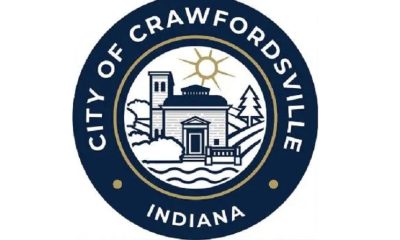Local News
Spartz fends off Republican rivals to win contentious Indiana congressional primary

Indianapolis, Indiana – Only a few months after deciding to compete for reelection, two-term U.S. Representative Victoria Spartz emerged victorious in a fierce Republican primary, drawing attention to her opposition to delivering relief to her home Ukraine.
In an area that leans heavily Republican, she overcame eight opponent Republicans to get a spot on the ballot this autumn.
Spartz, the first and only member of the House to be born in Ukraine, had previously supported aid to the nation. However, she changed her mind and voted against providing $61 billion in aid to Ukraine before her primary campaign. She justified the move by stating that she was devoted to America first and that she wanted the aid package to include border policy, a stance that her Republican opponents widely agreed with.
In part, the election in the northern Indianapolis suburbs served as a gauge for how well Spartz’s strategies would work. Several of her rivals, such as state representative Chuck Goodrich, who contributed $4.6 million to his campaign, agreed with her position. Spartz was criticized by Goodrich for having previously supported Ukraine, claiming that she places “Ukraine first.”
Millions of dollars separated Spartz and Goodrich in terms of fundraising and spending.
The primary signified Spartz’s political career’s most recent turn. She prevailed in a close primary in 2020 and faced no opposition in 2022 while seeking the GOP nomination. She had originally intended to resign from Congress last year, choosing not to run for reelection to her House position and missing the opportunity to run for the Senate seat that Republican Mike Braun was leaving up.
Subsequently, she decided to change her mind and run for another term in the House. However, her changing strategies provided Goodrich with an opportunity to raise a substantial amount of money and increased the likelihood that Spartz would become the first House Republican to lose a primary this year in a race unaffected by redistricting.
As they prepared to fly to their respective party conventions later this summer, President Joe Biden and Donald Trump, the presumed Republican presidential contender, gathered additional delegates throughout the state.
In 2020, Trump won Indiana by a wide margin, and he is the favorite to defeat Biden there this year. But months after withdrawing from the campaign, former U.N. Ambassador Nikki Haley was still garnering support, sending a hint to some Republicans that they are uncomfortable with their party’s standard bearer.
Voters in Indiana are not permitted to cast “uncommitted” ballots. The effort to protest Biden’s handling of the Israel-Hamas war and vote in some states has raised questions about the president’s likelihood of receiving Democratic support in November.
The Republican primary to succeed term-limited Governor Eric Holcomb was a six-way campaign, the most expensive and most followed contest in the state. Braun emerged victorious.
With Trump’s backing, name recognition, and financial advantages, Braun surged to the lead in the contest. In just the first three months of 2024, he spent almost $6 million.
Lt. Governor Suzanne Crouch ran on a platform of cutting the state income tax. Former commerce secretaries Brad Chambers, who received a $10 million donation for his candidacy, and Eric Doden also entered the race, but they were unable to gain traction with the conservative voters who determined the outcome of the primary.
Throughout the campaign, Braun was targeted by Chambers and Doden in particular for his past interactions with law enforcement. In 2020, Braun put forth a bill to amend qualified immunity, which shields law enforcement personnel from the majority of lawsuits resulting from work done while on duty. Later, after facing strong criticism from law enforcement, he reversed course on the proposal.
Former Attorney General Curtis Hill found it difficult to compete after being considered as a potential governor of Hoosier State. Jamie Reitenour, a newcomer in politics, was also running.
Similar to his 2018 senate campaign, Braun has positioned himself as a social conservative and political outsider. In November, he will go up against Libertarian contender Donald Rainwater and Democratic nominee and former state schools superintendent Jennifer McCormick, who ran unopposed.
-

 Local News2 weeks ago
Local News2 weeks ago$50,000 Truck stop sells Powerball tickets that are about to expire
-

 Indiana2 weeks ago
Indiana2 weeks agoAnderson man sentenced to 65 years for wife murder
-

 Local News2 weeks ago
Local News2 weeks ago$75 million “luxury urban” townhomes and condos with rooftop terraces are set to begin construction
-

 Local News1 week ago
Local News1 week ago$50,000 Powerball Double Play ticket sold in Indiana
-

 Local News2 weeks ago
Local News2 weeks agoVoters choose Democrats Munson, Deckard, Henry in county council primary
-

 Local News1 week ago
Local News1 week agoIn just two weeks, Indiana’s dashboard has recorded 22 COVID deaths and 846 new cases of the virus
-

 Local News1 week ago
Local News1 week agoTeachers in Indiana demand that the state board review the requirements for literacy licensing
-

 Local News2 weeks ago
Local News2 weeks agoHuge publisher aiming to expand 650,000 square feet in Crawfordsville






Leave a Reply